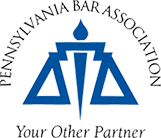People who either attend college or even just are around college campuses probably realize that there is drug use going on even among students who are otherwise responsible young adults who oftentimes even are showing a lot of promise.
Unfortunately, a student in the Indiana, Pennsylvania, who get caught with drugs at a social gathering could wind up facing serious drug charges. Even for first-time offenders, convictions for charges of this nature can lead to serious consequences that extend well beyond the courtroom.
Aside from the possibility of jail and probation, a conviction can mean lost job and educational opportunities as well as other problems that can a put damper a young person’s first years in the real world.
While there are times in which the right thing to do is to fight such charges, on many other occasions, the person accused may admit that they broke Pennsylvania’s drug laws but still would like the opportunity for a second chance. In such cases, a drug diversion program may be available.
Whether one qualifies for a drug diversion program depends a lot on the surrounding facts and circumstances, as well as the predilections of the local prosecutor and judge. As such, it is really best to explore this option with an experienced criminal defense attorney.
However, to give an overview, a drug diversion program will either take effect after charges are filed but before a person enters a plea or, alternatively, after the person admits to a drug crime but before sentencing.
Basically, an eligible person who agrees to a drug diversion program will be expected to follow certain rules, which will typically include staying drug free, avoiding serious trouble with the law and, possibly, attending counseling or educational classes. If the person meets all of the expectations set out by the authorities, the end result could be a dismissed charge, no conviction or a very light sentence.



